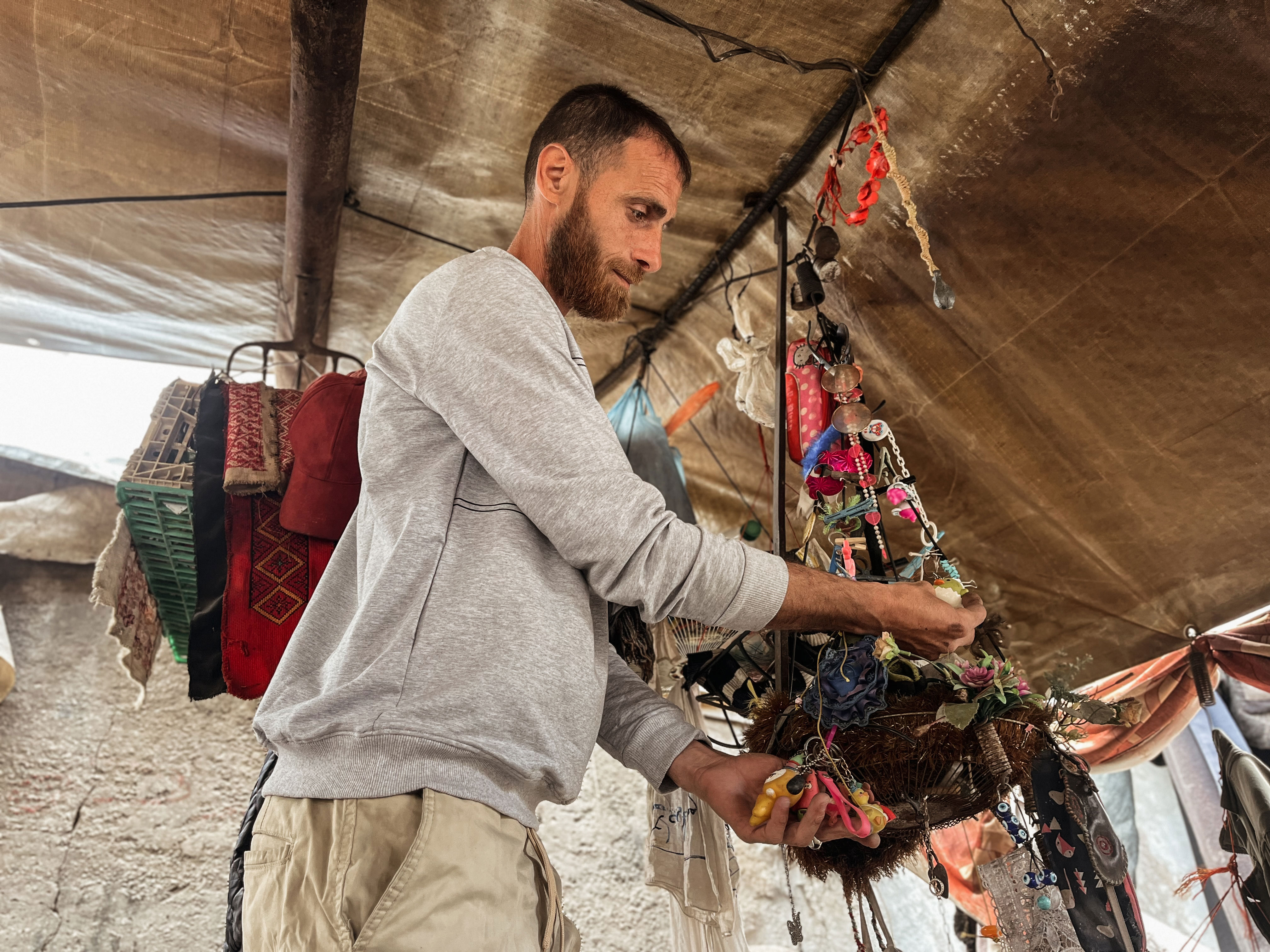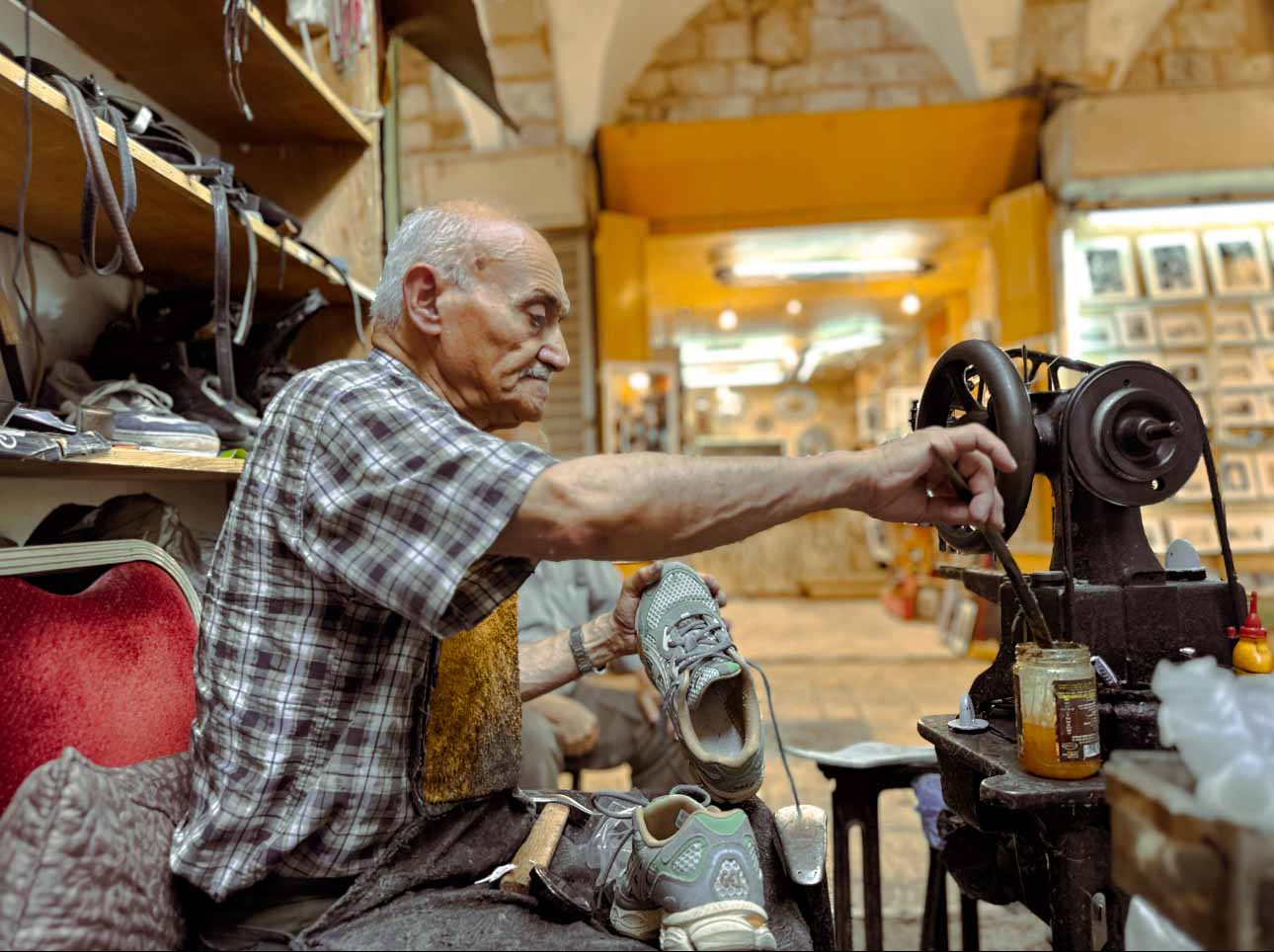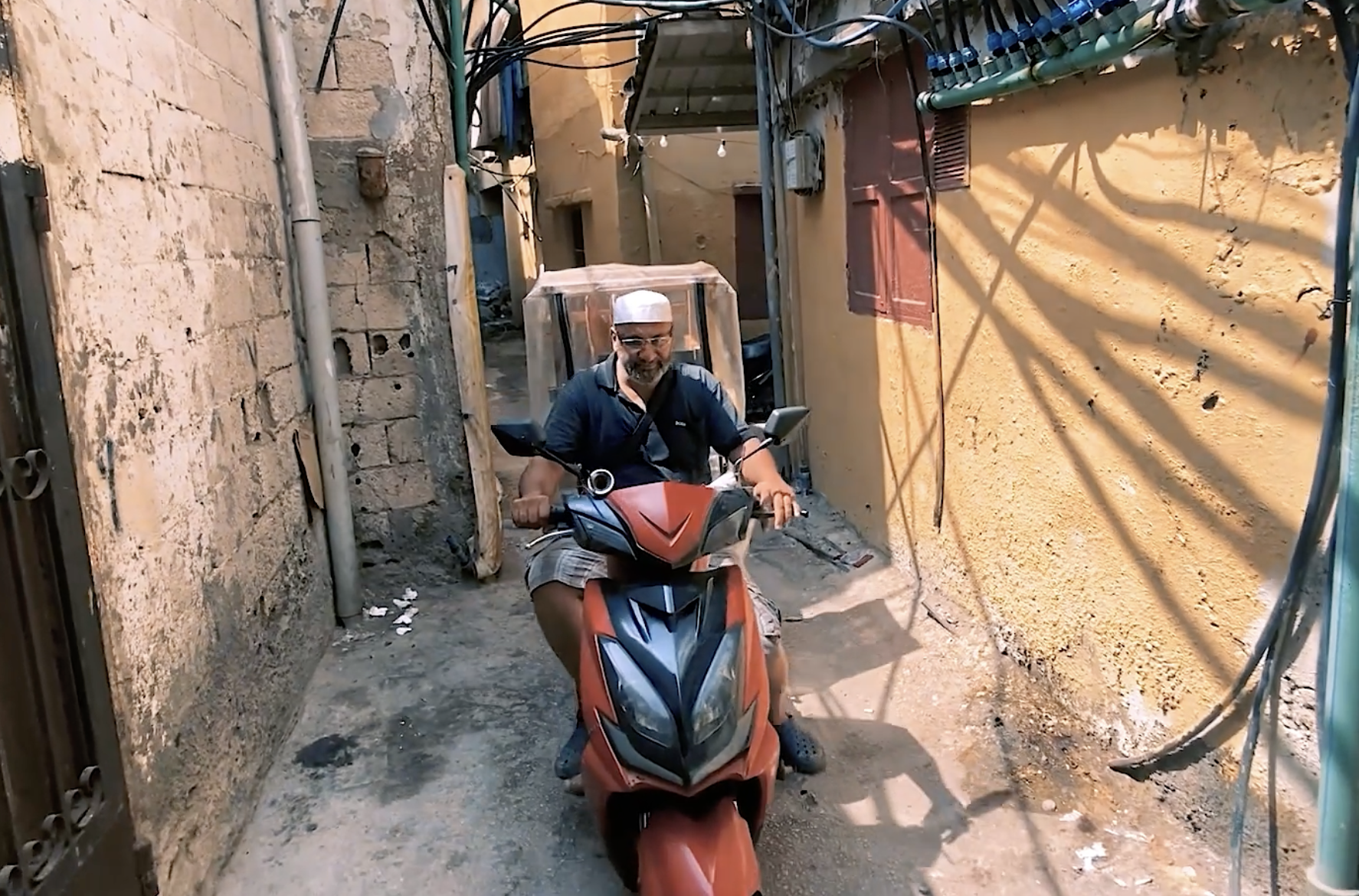Firas Weshah, known as “Abu Saed,” doesn’t need many words to explain what happened.
A few of his children’s toys strung along a cord, and a piece of fabric with the names of his killed family members written on it, tell the entire story.
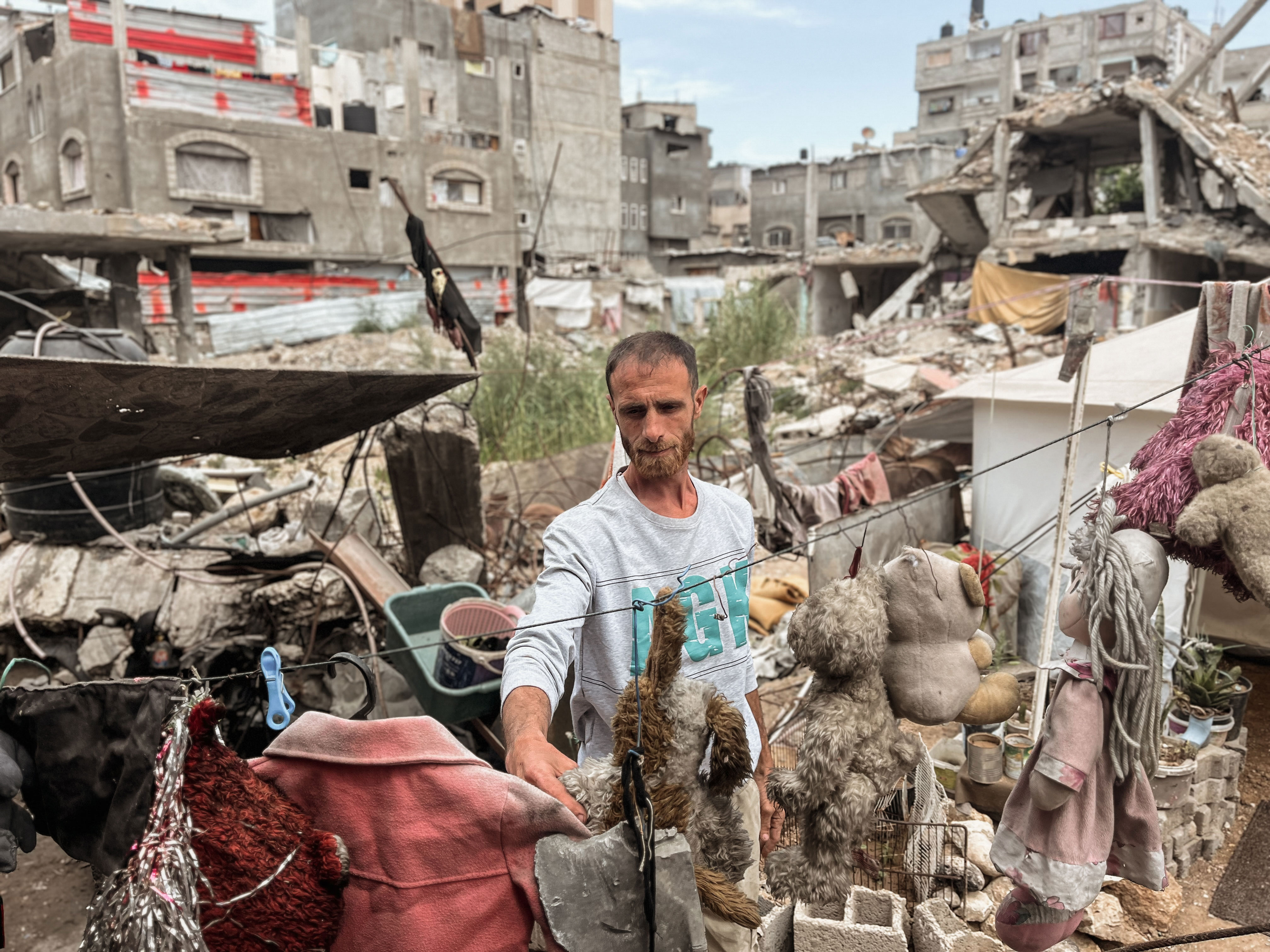
In a massacre carried out by Israeli forces in Al-Bureij refugee camp in the central Gaza Strip, Abu Saed lost nearly his entire family—his three children, his mother, his siblings, and their children.
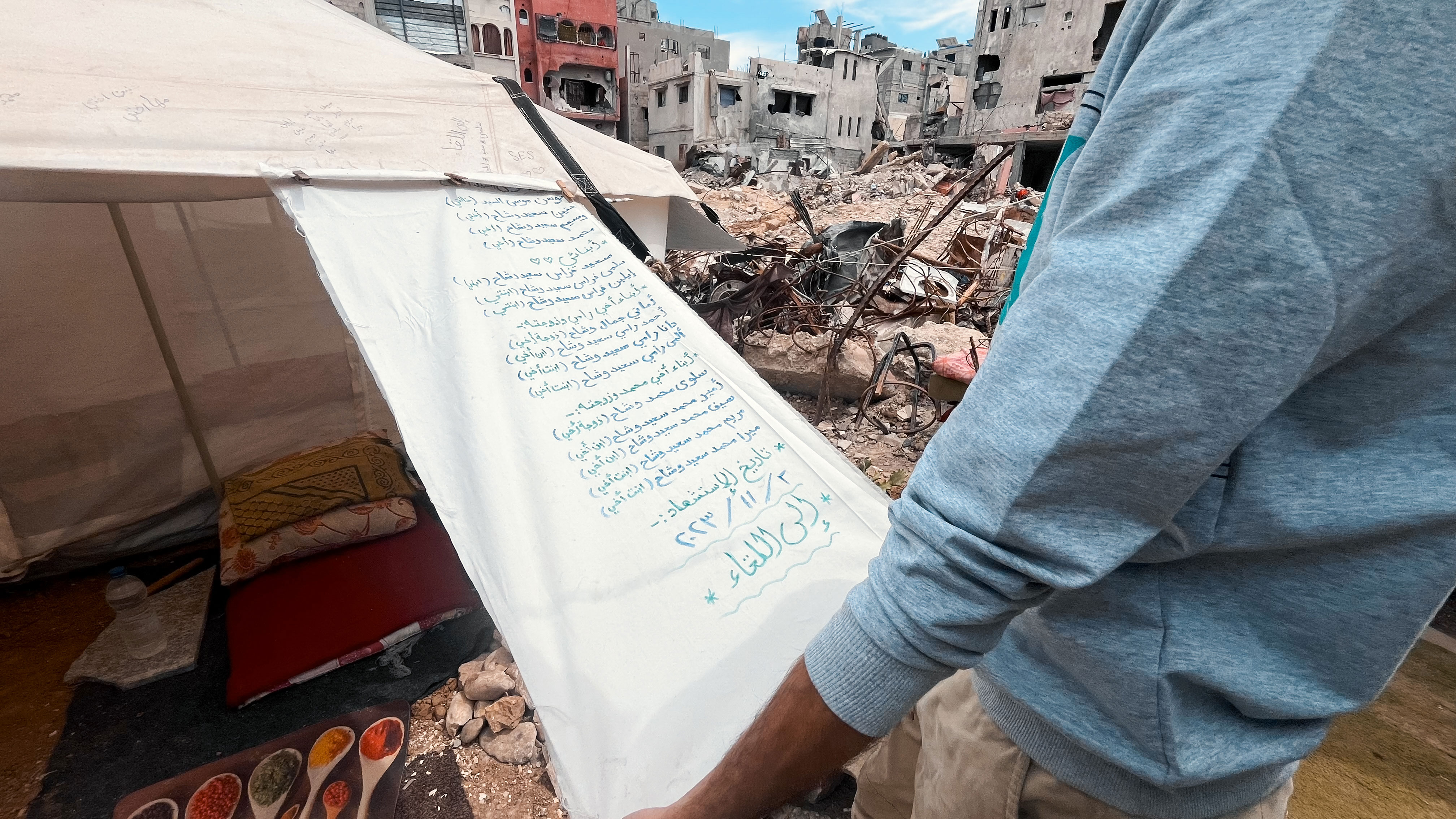
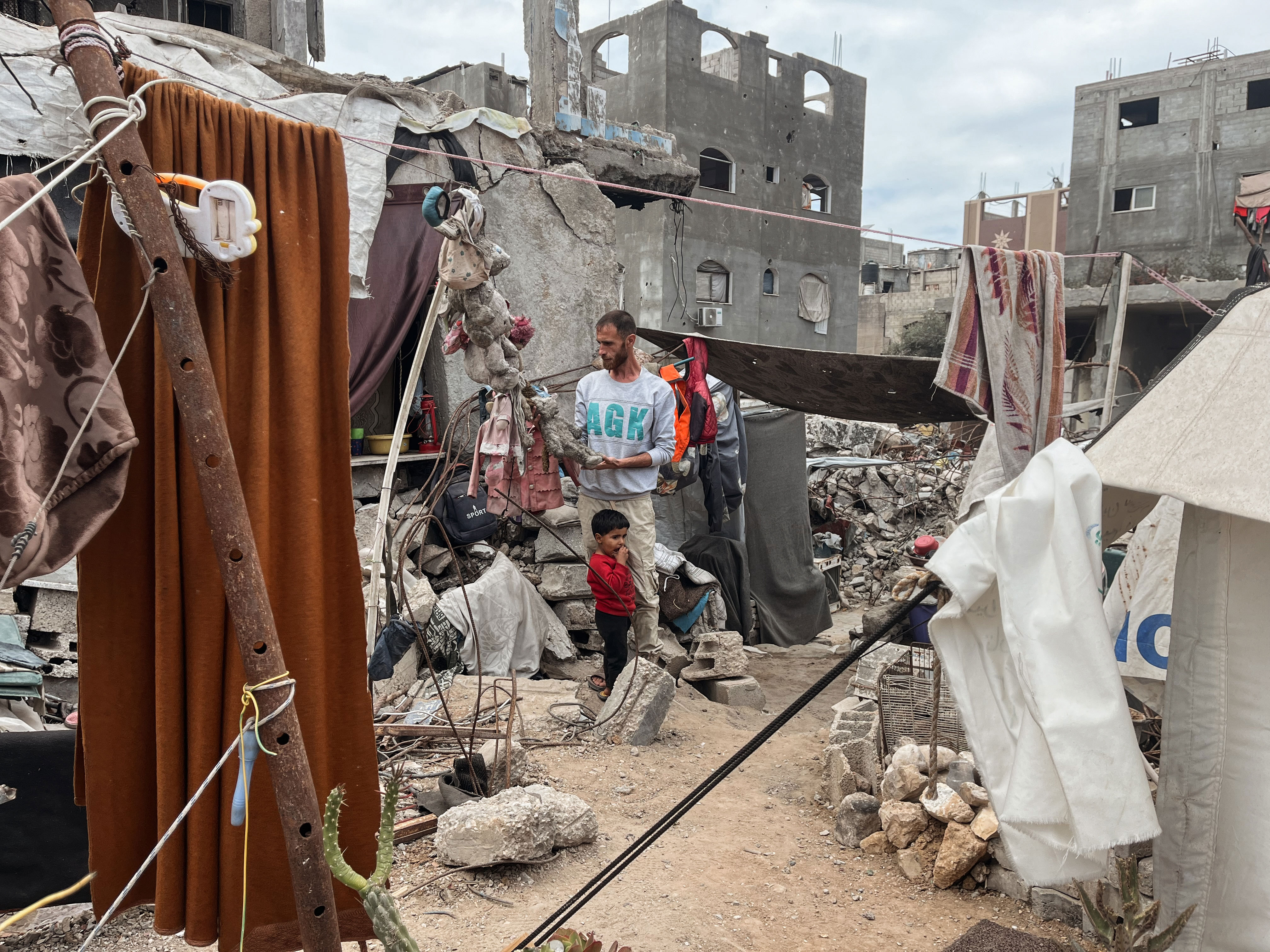
Only two survived: one of his little sons and a young niece who now calls him “Baba,” because she has no memory of anyone else after losing her parents.
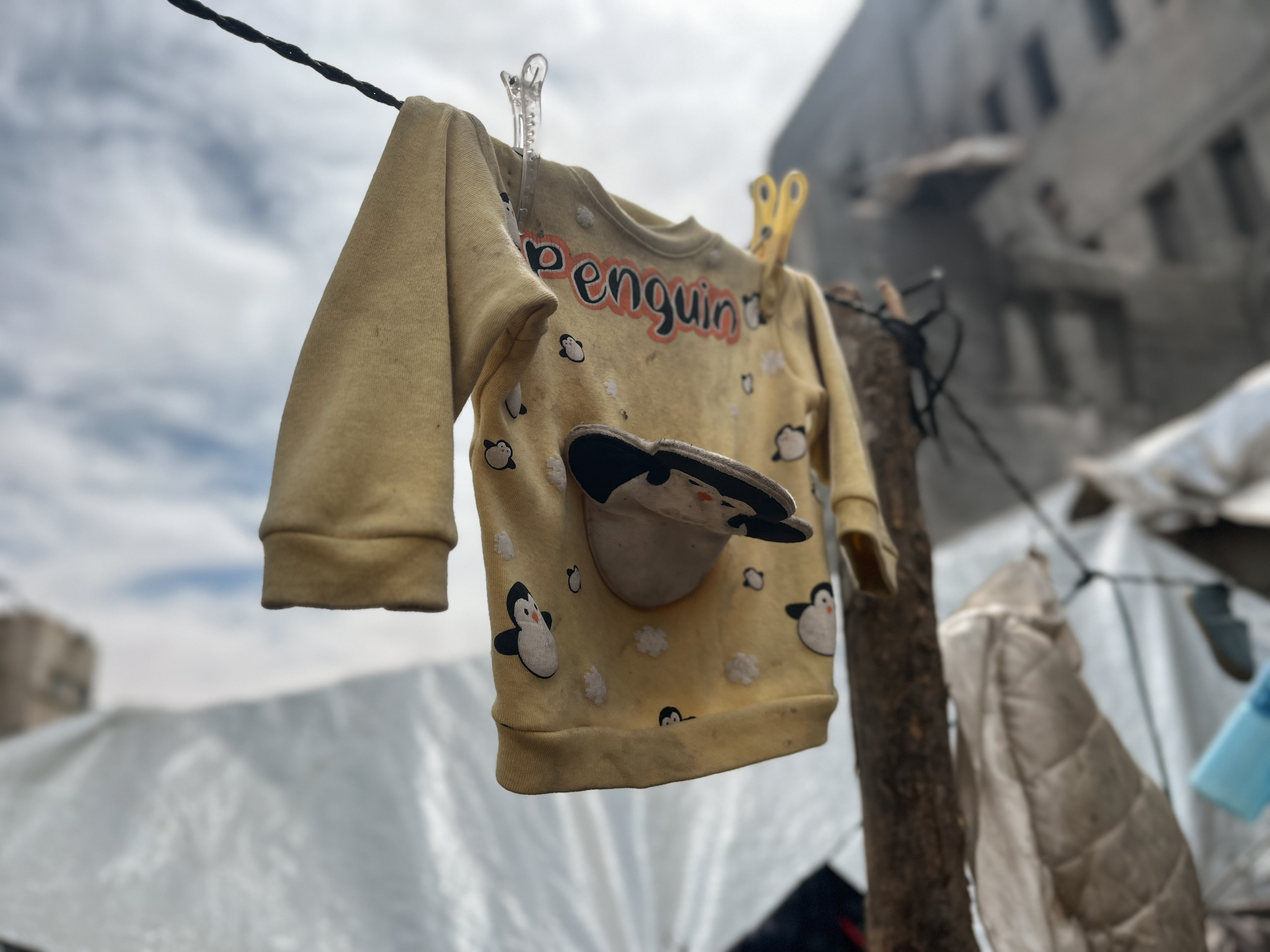
He pitched a small tent on top of the rubble that was once his home and began digging through the debris—and started collecting what remained of the memories.
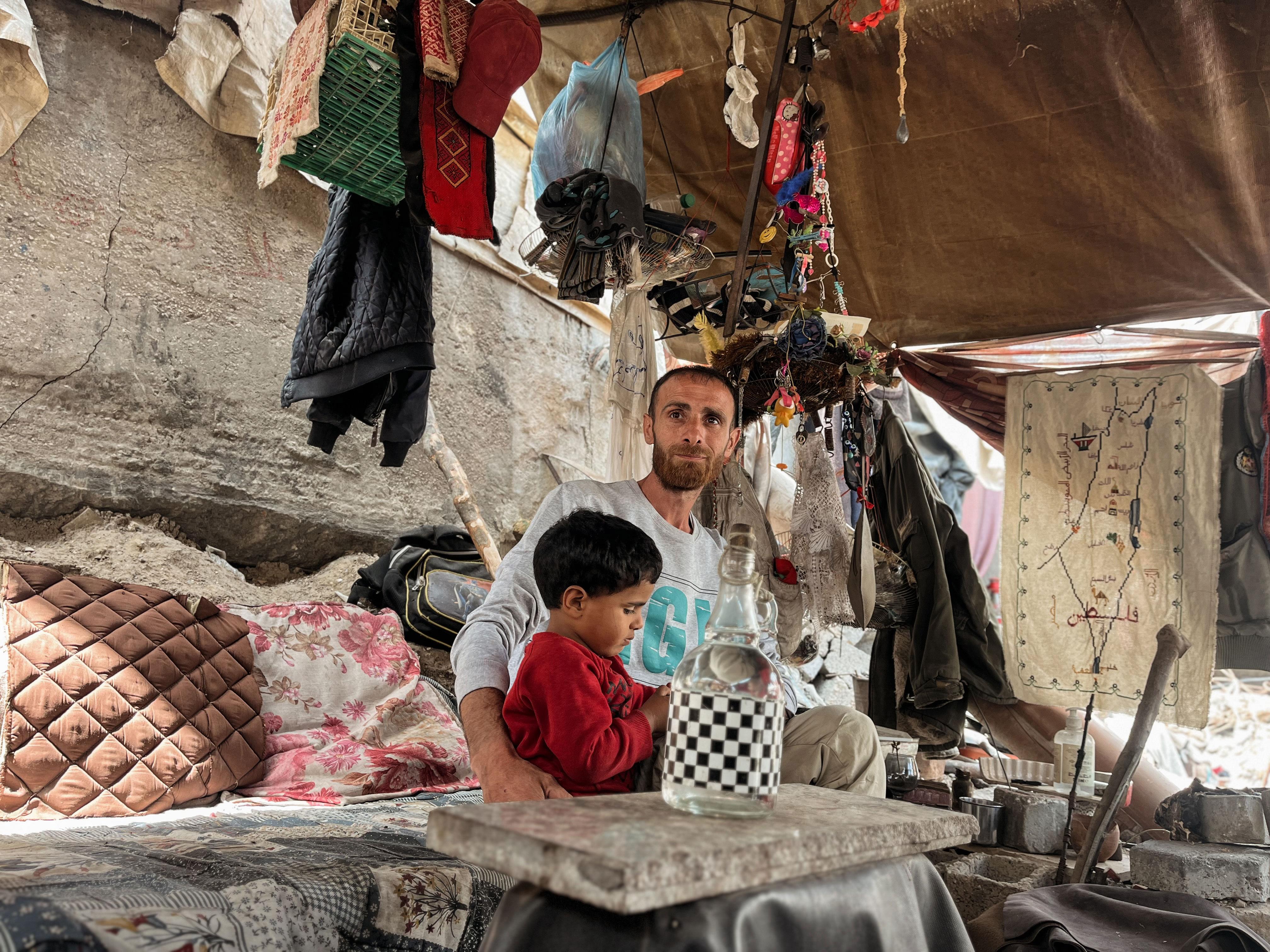
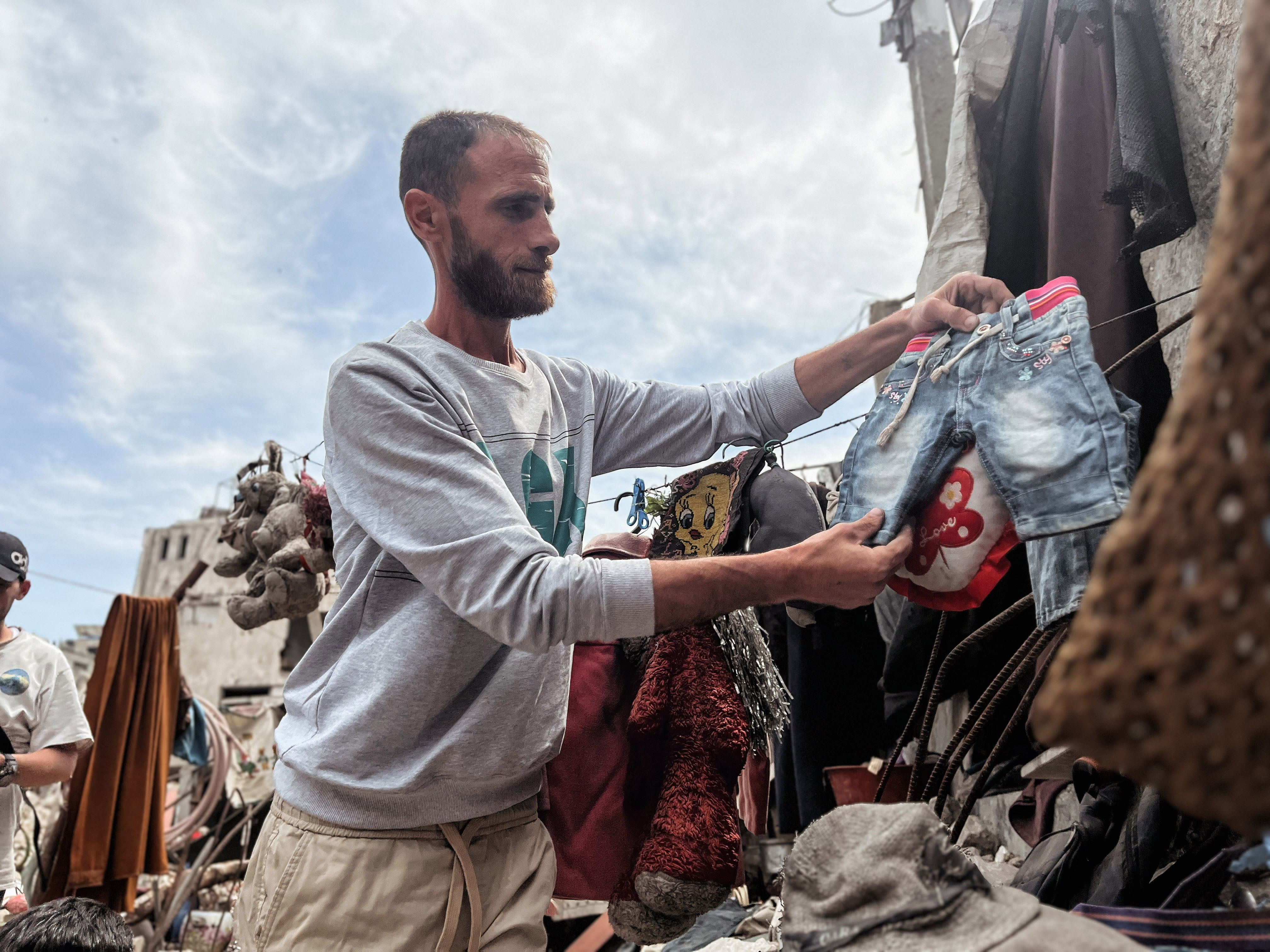
A toy, a scrap of clothing—anything that still carried their scent or presence.
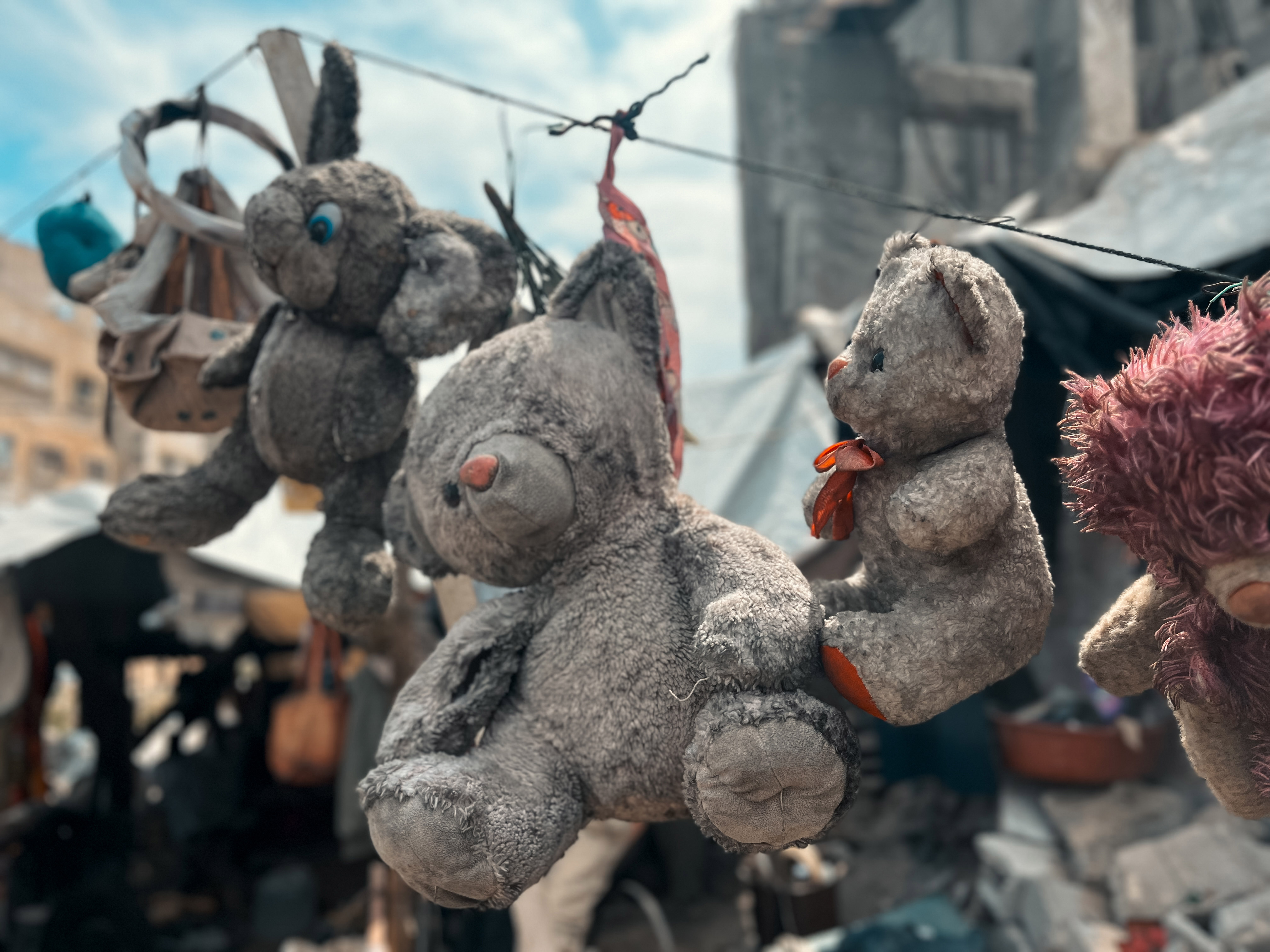
He hung these small remnants outside his tent, along with a white cloth bearing the names of his lost family, secured to what’s left of a shattered wall.
Together, they stand as a quiet testimony: the people who lived here were children and civilians. All they wanted was to live.
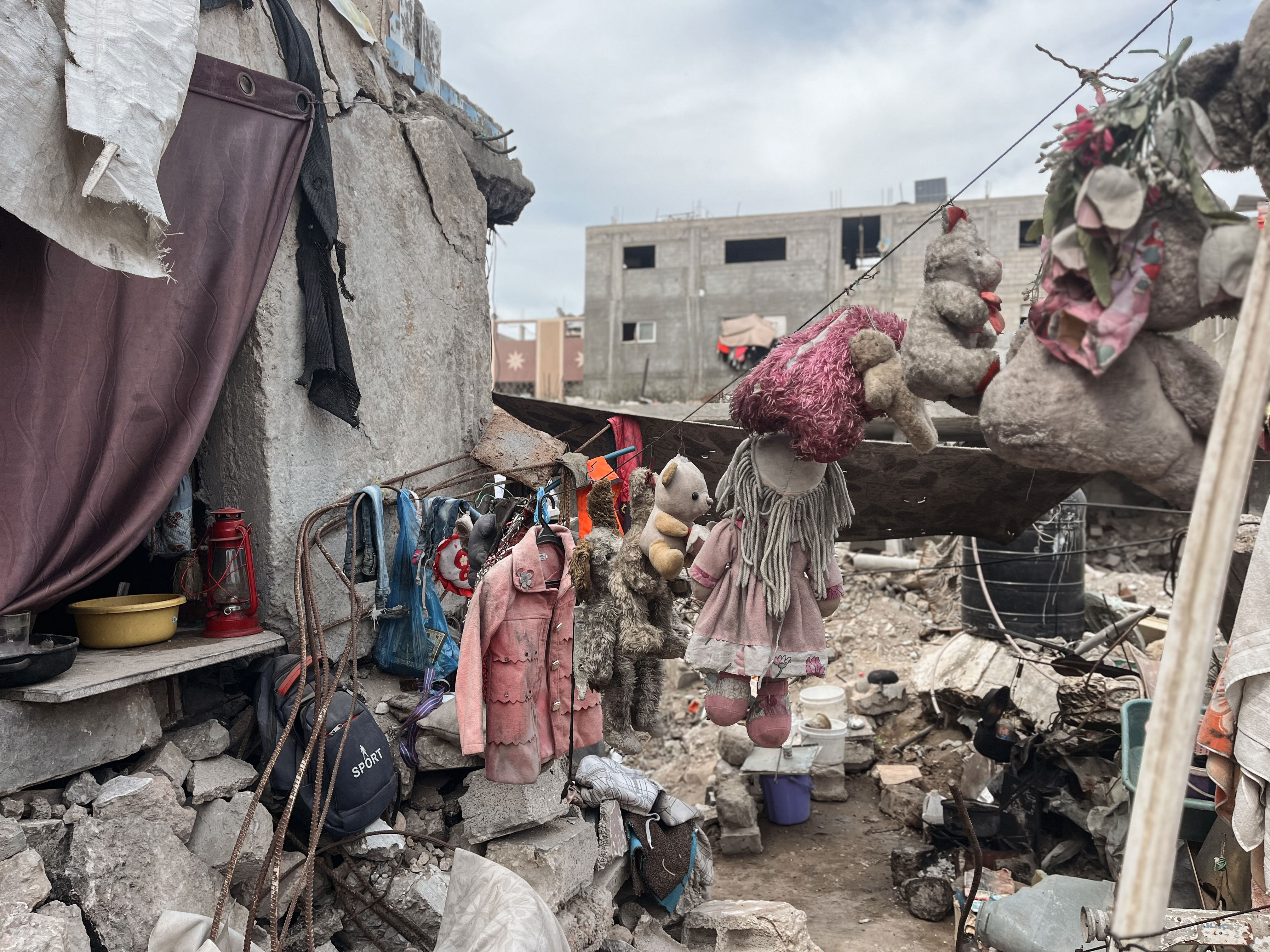
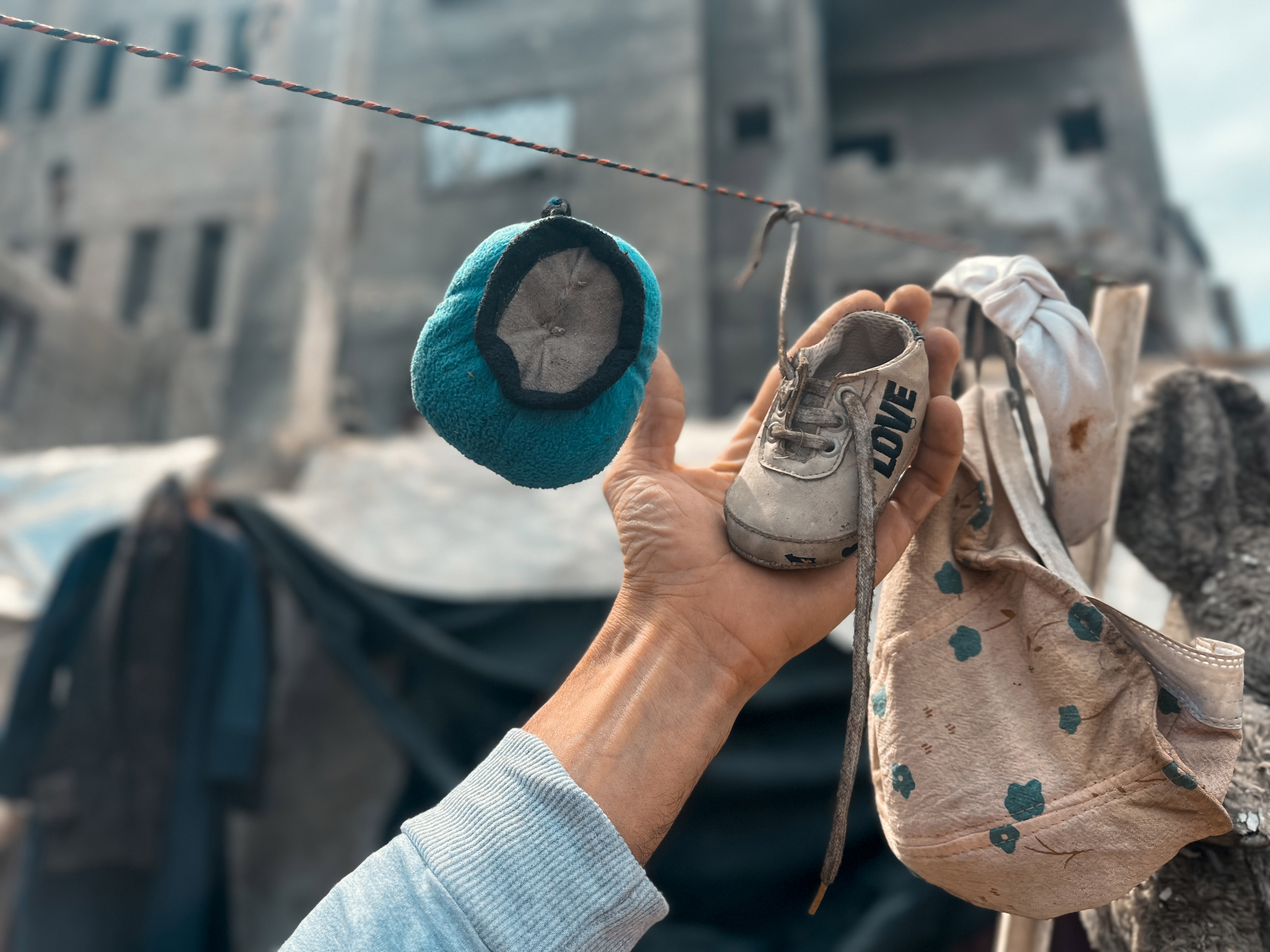
Today, despite everything, he says:
“I’ll stay here, in my tent, with those I have left. I won’t leave—even if all that’s left is dust.”
